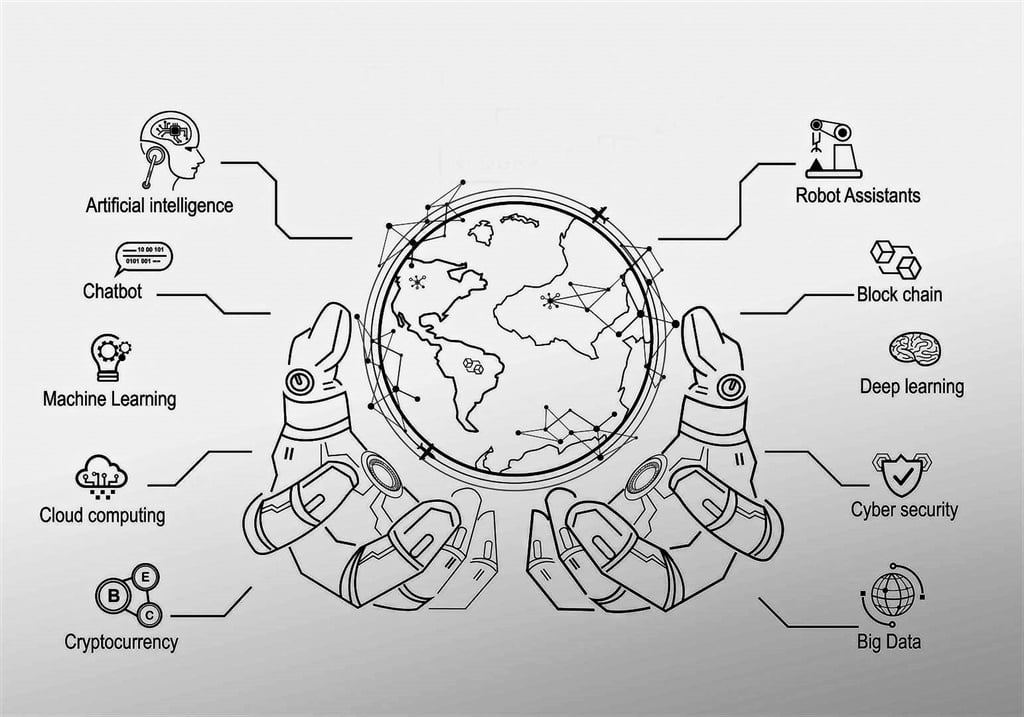
The technological revolution is dead. Long live the technological evolution. You will be hard-pressed to find a business or person unaffected to some degree by technology – even more so this past decade.
Ten years ago, Instagram, Snapchat, iPads and 4G did not exist and WhatsApp, Uber, the App Store, Kickstarter and the Chrome browser were less than a year old. Now, any five-year-old can tell you about these technologies.
Back in the dark days of 2009, when Twitter was still text only and Facebook had just got its “Like” button, the combined market cap of the top four tech companies – Apple, Amazon, Microsoft and Google – was about $716 billion (R10 trillion). A decade later that market cap sits at $4.1 trillion, excluding Facebook’s measly $575 billion.
These were the early unicorns – privately held start-up companies valued at more than $1 billion. In the past decade more than 30 tech-based companies, which did not exist a decade ago, have reached that mark. Among the most prominent of these are: . Snapchat (launched in 2011), valued at $23 billion;. Instagram (launched in 2010), valued at $100 billion; . 10x Genomics (launched in 2012), a biotech company specialising in “single-cell sequencing”, valued at $3.6 billion; and . Impossible Foods (launched in 2011), a plant-based food manufacturer, valued at $4 billion.
Besides the dominance of social media companies, there are cryptocurrency and fintech companies, food and grocery delivery companies, electric mobility companies, online investment companies and even an e-cigarette and online editing company. From bitcoin and blockchain to Pineapple (an insurance company), Mr Delivery, Lyft, Juul, Uber, Meero, WeWork, Siri, Beyond Burgers and even genealogy DNA testing, technology has infiltrated every part of our daily lives.
But not all the tech companies survived this decade. Some failed outright, while others slowly petered out, having failed to live up to expectations. Still others died. Google Glass, 3D printing and BlackBerry are just three of these. Blockbuster went bankrupt in 2010, proving there was no space to hire movies in the age of streaming services, led by Netflix.
Between 2013 and 2019, Netflix astounded with its upward trajectory, having increased its customer base from 29 million to 158 million.
READ: #TrendingAwards2019: The best and worst of technology
There have been significant strides in artificial intelligence (AI), cloud computing, virtual reality, augmented reality and gaming, making each industry worth billions if not trillions of dollars. Advancements in robotics have enabled surgeons to perform minimally invasive procedures, even if they are not in the same city as the patient.
This decade saw Facebook and Google appear before Congress to account for their questionable business practices. In the first half of this year, US President Donald Trump spent more than $11.1 million on Facebook and Google ads. This, on the back of his 2016 election win that saw his campaign deliberately use data to spread content – fake or otherwise – via a combination of Russian trolls, Trump supporters and the now-defunct UK consulting firm, Cambridge Analytica, for targeted “bubble-like” reinforcement. This, contend his opponents, influenced the election outcome.
Locally, bots and trolls – most of them on Twitter – were hired to target journalists and anyone who dared speak out about state capture and its cronies. But instead of harming a company’s image (Cambridge Analytica excluded), such actions have left many people wondering if technology has not outpaced legislators, who appear to be playing catch-up in terms of both knowledge and power.
Most large tech companies have been involved in scandal: Apple and Facebook listened in on their users; Amazon and Microsoft used AI and cloud technology for military applications; Uber bypassed transport laws; and there have been many data breaches of personal information. But all of these companies have survived, which makes us ask: Are we too reliant on their technology?
The race to claim 5G superiority has fuelled a political scandal, with the US banning China-based tech company Huawei from doing business with US companies. Ironically, Huawei was then found to be so deeply embedded within the US government’s own technology, and within society, that the ban had to be suspended.
As we cross the Rubicon into the imperial age of technology, the die has been cast. The battle for privacy, data and influence has ignited a feud between technology companies and legislators. How do we balance the right to privacy with the right to security, be it for citizens or for state elections? Perhaps 2020 will provide the solution.




 Publications
Publications
 Partners
Partners









